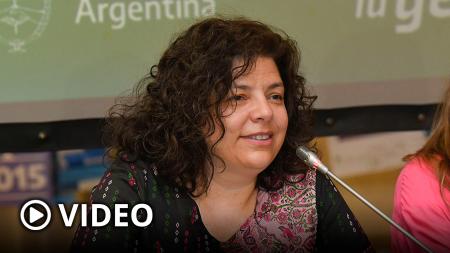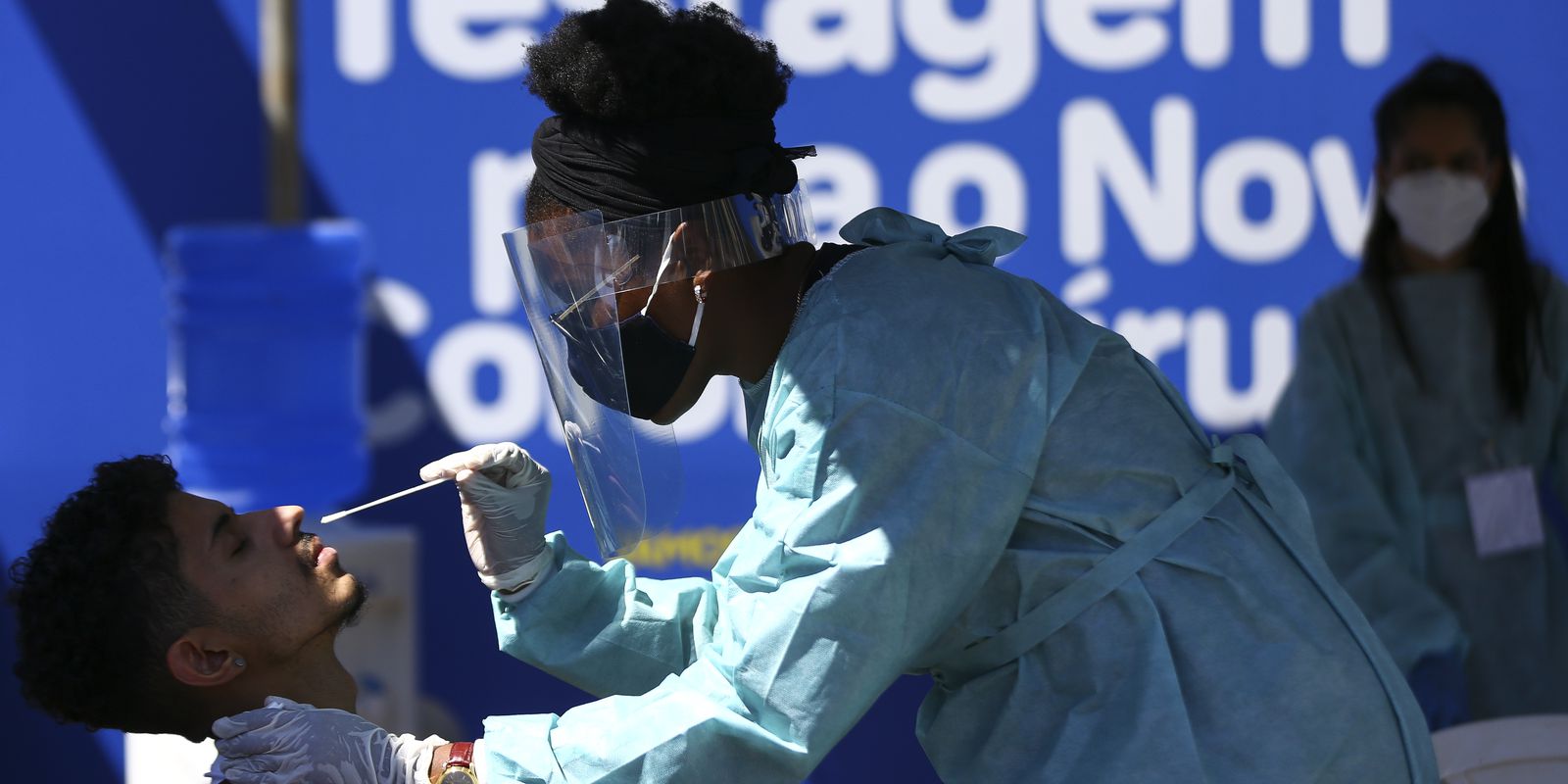The Minister of Health, Carla Vizzotti, said on Tuesday that “Argentina is a pioneer in the region and in the world with advanced regulations,” when leading the federal meeting that was held at the San Martín Palace, in the city of Buenos Aires. , when fulfilled 20 years of the enactment of Law 25,673 on Sexual and Reproductive Health (SSyR).
“This law was the beginning of a process that triggered, from the women’s struggle, feminisms and dissidence, different regulations that were expanding rights,” said the minister in dialogue with Télam about the norm sanctioned on October 31, 2002, which recognized sexual and reproductive health as a right and forced the State to develop public policies to guarantee it.
“This law generated the responsibility of the State to develop quality measures such as access to contraceptives and information on the prevention of unintended pregnancy”Vizzotti explained at the closing of the “Federal Meeting. 20 years of Law 25,673 on Sexual and Reproductive Health” that began this Monday.
The official stressed that the law “was later combined with the law of equal marriage, gender identity, trans quota until reaching the law of voluntary interruption of pregnancy, which places Argentina as a pioneer in the region and in the world with advanced standards.
With the promulgation of this law, the right of people to choose the contraceptive method they want to use was recognized and they were included in the Mandatory Medical Plan, in this way, people can obtain free condoms, pills, injectables, IUDs, emergency contraception, surgical contraception (tubal ligation and vasectomy) and subdermal implant.
Every day we renew our commitment to prevent and eradicate gender violence.
Our job is to reach every corner of the country, to continue advancing towards a more just, egalitarian and violence-free society.
In health there is a team ??
— Carla Vizzotti (@carlavizzotti) November 15, 2022
“This law was a great achievement, it allowed the National State to buy contraceptive methods and distribute them free of charge. Today we are reaching more than 5,000 health centers, with a basket of 12 contraceptive methods,” he told Télam. Valeria Isla, National Director of Sexual and Reproductive Health.
Isla valued that there was a cultural change with the sanction of this law, which came to change the social perspective on sexual and reproductive rights.
“When the law was enacted in 2002, we were still under the paradigm of the maternity mandate as the only destination for women. The fight of feminism was very important for the program to be integrated into other health programs,” he stressed and assured that “there are intersectoral and interparty agreement to support this sexual rights agenda throughout the country”.
Érica Laporte, head of the Advisory Cabinet Unit of the Ministry of Women, Gender and Diversity of the Nation (MMGyD)stressed that “for us who have been militating against abortion, this law was a beacon, it allowed us to continue advancing in many more rights.”
“We have to continue guaranteeing that reproductive and non-reproductive sexual rights is a commitment that we have,” he said.
In the commemoration of the anniversary of the law, where delegations from all over the country participated, a video was shown listing the milestones in recent history regarding the expansion of sexual rights in Argentina, diplomas were awarded to former directors of the Sexual Health program and, finally, the poet Martina Cruz read some allusive texts.
The Sexual and Reproductive Health Law complies ❗️
20 years of a law that guarantees sexual and reproductive rights throughout the country with a gender perspective.
We continue to work every day for access to sexual and reproductive health for all people.#PeopleFirst
– Ministry of Health of the Nation (@msalnacion) November 15, 2022
“The fight for sexual and reproductive rights is a collective, loving story of defending rights and building autonomy for women in something that the patriarchy has historically been ruthless in having it as the place of resistance, the most appreciated border for not recognize the rights of women and diversities,” said Estela Díaz, Minister of Women, Gender Policies and Sexual Diversity of the Province of Buenos Aires.
Díaz called on those present to defend the Sexual and Reproductive Health Law since “none of the social phenomena are irreversible.”
In the act, a special mention was also made to the networks and organizations that were militating the cause and that put the body for the effective fulfillment of the rights granted by the regulations.
“The networks brought more health to the population. Life was always put first, that’s why we do what we do,” he said Ruth Zurbriggen, member of Socorristas en Red.
Twenty years after the enactment of the law, Isla maintained that the challenges for the future are to expand contraceptive methods and advance in the public production of medications for the termination of pregnancy.
“The next challenge is to incorporate two-rod implants, we already have the one-rod implant, which lasts 5 years. We have to continue with the post-obstetric event contraception guide, which contemplates that each person with the capacity to gestate completes their pregnancy, delivery or who has agreed to a pregnancy termination, go out with your contraceptive method,” he said.
“Another challenge is to achieve public production of mifepristone, which is a highly effective medication according to the WHO for access to pregnancy termination,” Isla explained about the drug that is 97% effective combined with misoprostol, the drug used in abortion care that the provinces of Río Negro, Santa Fe and San Luis already produce today.
“The challenge is for these laws to reach every corner of the country, for these words written on paper to become reality. Rights are won and must be defended every day,” concluded Vizzotti.













